Notable anniversaries provided the ballast for this year’s raft of exhibitions; none was dead weight, though, with shows dedicated to Rembrandt, Leonardo and Ruskin among the most original and exhilarating of 2019’s offerings. Happily, a number of our favourites are still running, and there’s a month left to see Rembrandt’s Light at Dulwich Picture Gallery.
Gagosian Gallery took Rembrandt’s Self-Portrait with Circles, c.1665, as the starting point for Visions of the Self, which included works by Howard Hodgkin, Francis Bacon and Diane Arbus in an exhibition that turned out to be as much about artists’ relationships with Rembrandt as with self-portraiture. Rembrandt’s spiritual home at Amsterdam’s Rijksmuseum took the occasion of the 350th anniversary of his death as a chance to stage Rembrandt Velázquez: Dutch and Spanish Masters, an outstanding show with a wholeheartedly visual focus. The premise was simple: to compare paintings from 17th century Spain and the Netherlands, countries that though separated by religion were closely tied, and both experiencing a Golden Age. Meanwhile in London, the British Museum’s exhibition of Rembrandt’s prints and drawings was one of Marina Vaizey’s outstanding shows of 2019.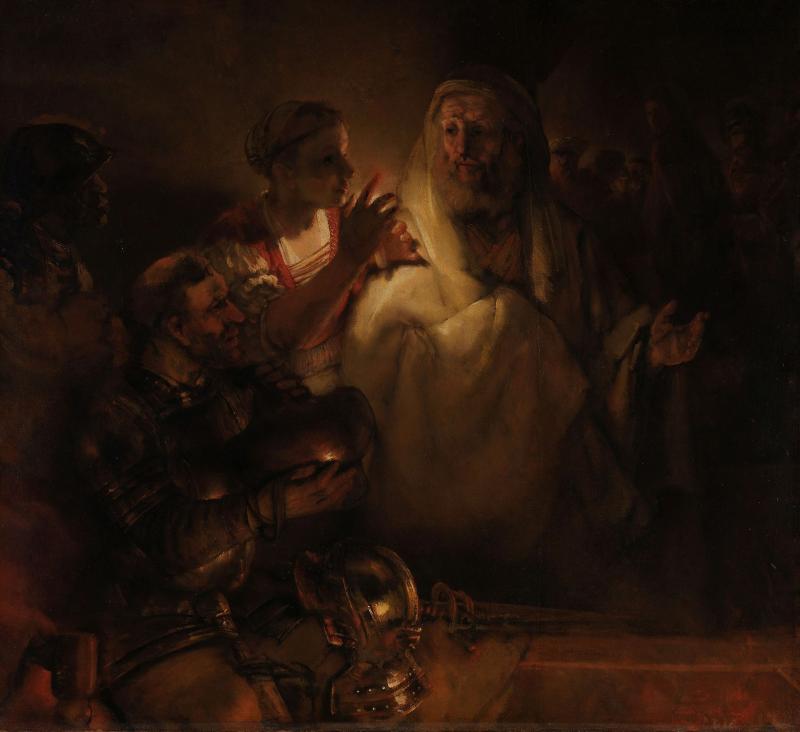
We had to wait almost until the year’s end for another of our critics’ favourites to open at the Jewish Museum in Camden. Charlotte Salomon: Life? or Theatre? got the full five stars from Katherine Waters, who describes it as “an absolute revelation”. Sheet after sheet of gouache paintings weave together song, image and text into a unique and deeply moving fictionalised autobiography that excavates Salomon’s family history of suicide, her first love, and the deteriorating social fabric as Germany fell prey to the National Socialist party – all in the course of finding her own artistic voice. It is an engrossing and deeply affecting exhibition dedicated to an artist who was just one of the millions murdered at Auschwitz; the show continues until March 1, and we urge readers to visit.
Each year brings with it a crop of newly “rediscovered” artists, but it’s hard to think of a more stunning array of neglected talents than those we’ve seen over the past 12 months. Sarah Kent was bowled over – as I think we all were – by Lee Krasner at the Barbican, whose exhibition Living Colour she describes as “undoubtedly the best of 2019”. Though a brilliant painter in her own right, Krasner had previously been best known as the wife of Jackson Pollock, whose death in a car crash in 1956 prompted a burst of grief-induced creativity. “She began to produce huge canvases like Polar Stampede (pictured below)” writes Sarah Kent. “A giant flurry of sepia arcs, it engulfs you in its explosive, edgy, desperate and euphoric energy. She never looked back and over the next three decades, until her death in 1984, produced some of the most magnificent abstract paintings of the late 20th century.”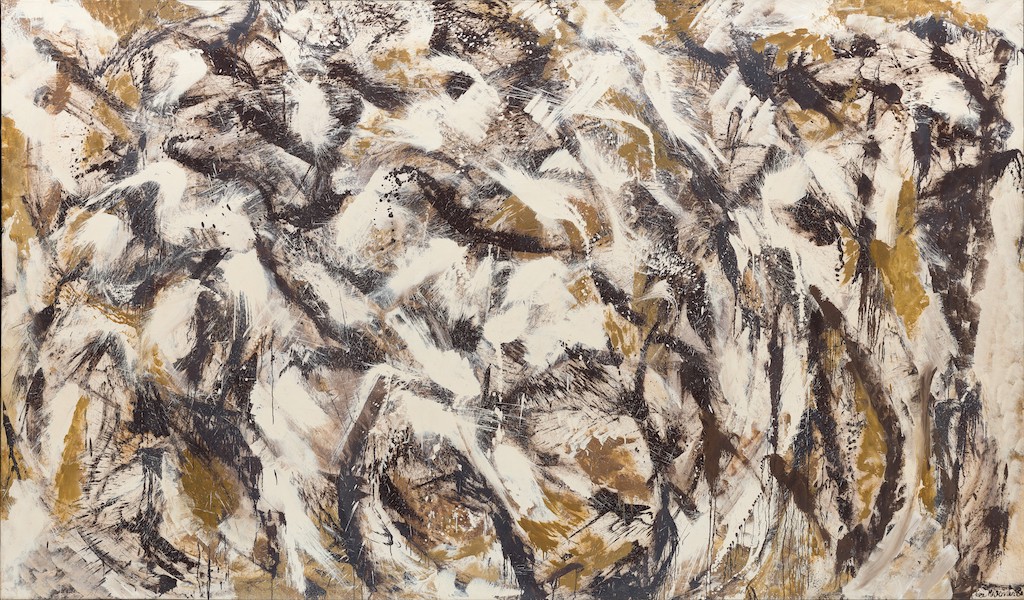 British Guyanese artist Frank Bowling was given his first major retrospective at the age of 85, as part of what Katherine Waters describes as “a series of brilliant and unusual shows at Tate Britain. Their peppy programme featured rebels, outsiders and autodidacts, and the Frank Bowling show drew sighs of admiration and encouraged much lingering. Special mention should be made to curators Elena Crippa and Laura Castagnini whose respect and admiration for the full range of his work was clear.”
British Guyanese artist Frank Bowling was given his first major retrospective at the age of 85, as part of what Katherine Waters describes as “a series of brilliant and unusual shows at Tate Britain. Their peppy programme featured rebels, outsiders and autodidacts, and the Frank Bowling show drew sighs of admiration and encouraged much lingering. Special mention should be made to curators Elena Crippa and Laura Castagnini whose respect and admiration for the full range of his work was clear.”
Another veteran of the British art scene to receive a retrospective is Bridget Riley, whose show runs until 26 January. The sometimes rather awkward spaces at the Hayward Gallery are the perfect setting for this celebration of her 70-year career, which takes us from art school days to the present day. It’s fascinating to see the meticulously detailed preparatory works relating to finished pieces. Designs are laid out on graph paper, the colours painted on, or applied with glue from wads of pre-cut, coloured paper in a fashion reminiscent of Matisse’s cut-outs. Observations and changes are marked in pencil, the final composition arrived at through a gradual process of looking and doing, looking and doing again.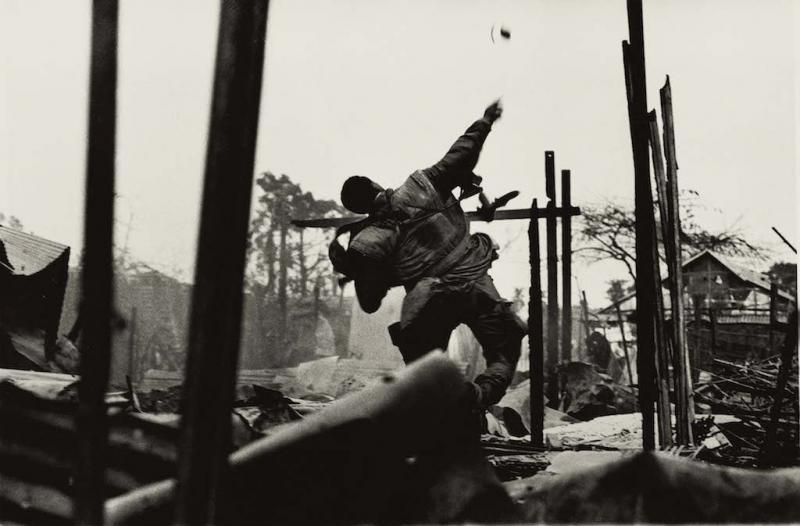 Phyllida Barlow’s transformation of the Royal Academy’s Gabrielle Jungels-Winkler Galleries was a euphoric delight, according to Sarah Kent, her flamboyant sculptures “inhabiting the elegant space like uncouth misfits” (main picture: canvasracks, 2018/19). Meanwhile at Tate Modern, Franz West proved a hit with our critics in a show we tagged as “absurdly exhilarating”. The V&A continued its now well-established series of fashion exhibitions with a double billing of Mary Quant and a stunning celebration of Christian Dior, while fashion photographer Tim Walker paid exuberant tribute to the V&A itself in his show Wonderful Things.
Phyllida Barlow’s transformation of the Royal Academy’s Gabrielle Jungels-Winkler Galleries was a euphoric delight, according to Sarah Kent, her flamboyant sculptures “inhabiting the elegant space like uncouth misfits” (main picture: canvasracks, 2018/19). Meanwhile at Tate Modern, Franz West proved a hit with our critics in a show we tagged as “absurdly exhilarating”. The V&A continued its now well-established series of fashion exhibitions with a double billing of Mary Quant and a stunning celebration of Christian Dior, while fashion photographer Tim Walker paid exuberant tribute to the V&A itself in his show Wonderful Things.
Don McCullin's retrospective at Tate Britain was one of the most memorable occasions of the year: the sheer weight and extent of his experience was awe-inspiring, and his mastery and commitment to the now lost art of black and white photography a precious relic from the recent past (pictured above: Don McCullin, Grenade Thrower, Hue, Vietnam, 1968). Sarah Kent described it as "the darkest, most compelling exhibition you are ever likely to see": certainly, of all the things I have seen this year, this and Charlotte Salomon's gouaches will stay in my mind's eye the longest.

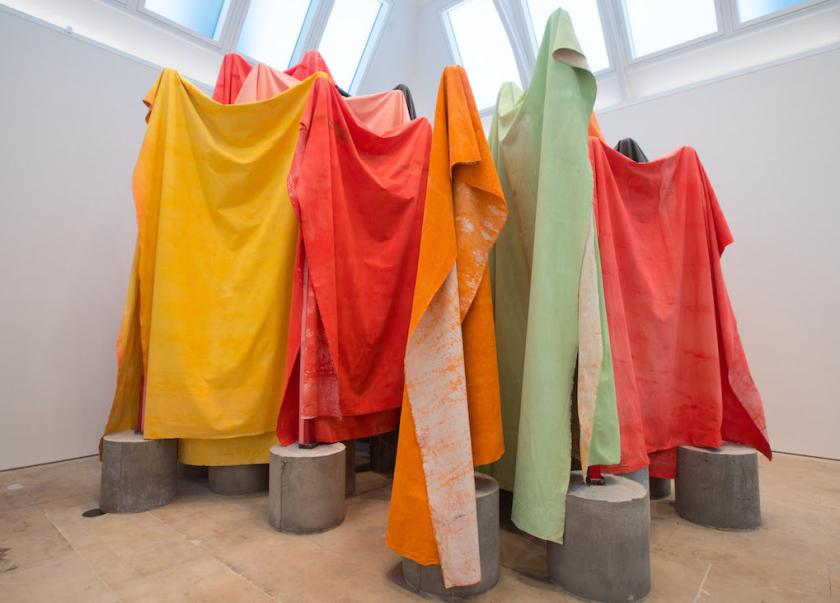


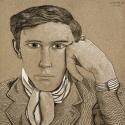
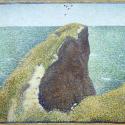
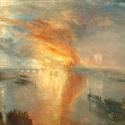

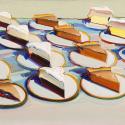


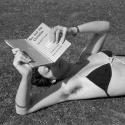
![SEX MONEY RACE RELIGION [2016] by Gilbert and George. Installation shot of Gilbert & George 21ST CENTURY PICTURES Hayward Gallery](/sites/default/files/styles/thumbnail_125_x_125_/public/mastimages/Gilbert%20%26%20George_%2021ST%20CENTURY%20PICTURES.%20SEX%20MONEY%20RACE%20RELIGION%20%5B2016%5D.%20Photo_%20Mark%20Blower.%20Courtesy%20of%20the%20Gilbert%20%26%20George%20and%20the%20Hayward%20Gallery._0.jpg?itok=3oW-Y84i)
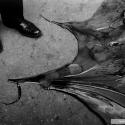
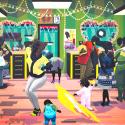
Add comment